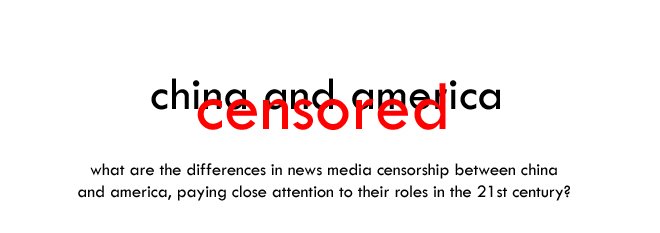As the People’s Republic of China emerges as a key player in 21st century interactions, it must come to terms with its controversial government’s control over the news and media, in addition to other human rights and social issues that continue to haunt the country as it enters the global spotlight. Chinese media reform is occurring, perhaps under pressure from others. However, the true extent of liberalization remains unclear. With China appearing in the news more frequently, especially with the upcoming 2008 Olympics in Beijing, how will its government leaders respond?
It is equally important to investigate censorship in America, a democracy that prides itself on its freedom of speech and press. Yet because of current censorship today, mostly involving the fight against terrorism overseas, the American press, one can argue, has shifted its focus to more frivolous, gossip-oriented news. It is an extreme viewpoint, but conceivable. As the conflicts in Afghanistan and Iraq continue, it becomes important to reexamine the role of the media: do Americans get all the information they need, enough for their future generations to continue the country’s role as a world power?
The cultural implications of these differences—one trying to fit in with the crowd, the other shifting focuses—may play a significant part in determining future roles in global relations. It is important to question the role censorship plays in our everyday lives:
- How much of America's news is censored, and has celebrity news been replacing newsworthy stories? How does news from the front lines of the war against terrorism reach our television sets and newspapers at home?
- What role does the American government play in the news media?
- What does corporate ownership of news sources mean for America?
- How is China responding to controversial news topics, especially considering recent coverage of SARS, Avian Bird flu, and lead paint in toys?
- Is China under pressure to lessen the amount of censorship it imposes on its people?

No comments:
Post a Comment